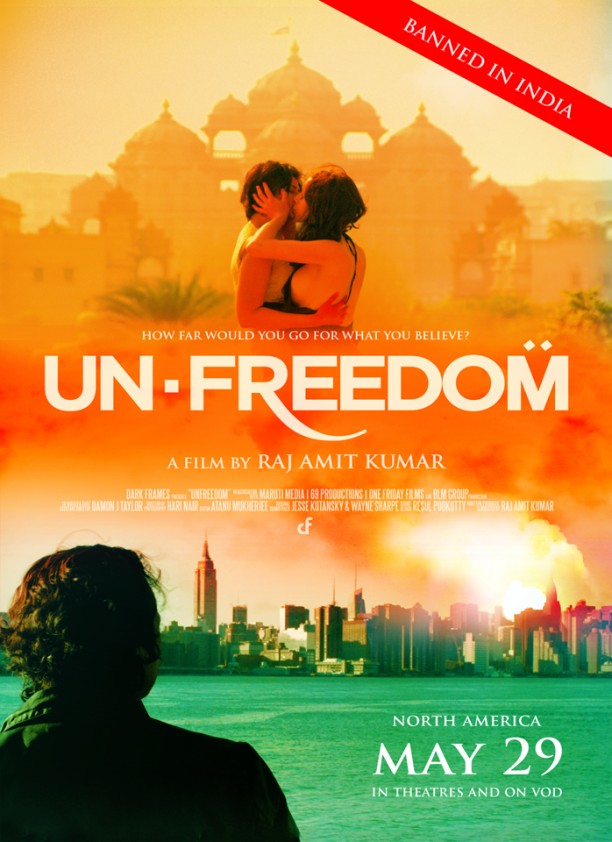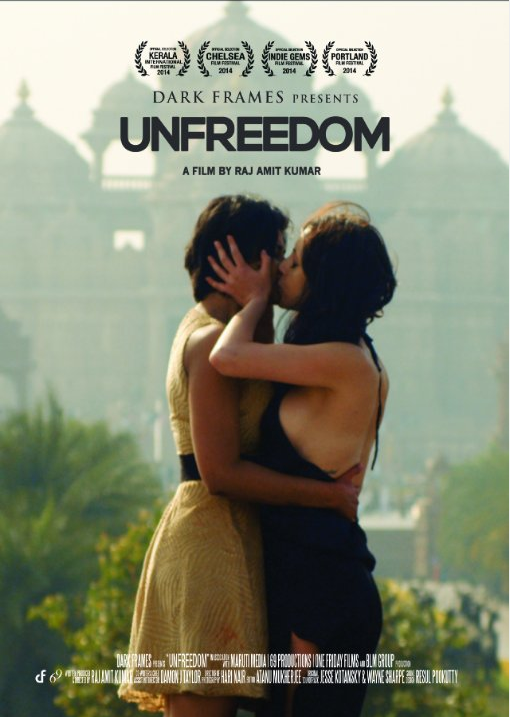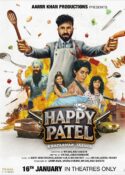 Unfreedom: Blemished Light –“It’s the choice we make when we are the most cornered in life that defines who we are.”
Unfreedom: Blemished Light –“It’s the choice we make when we are the most cornered in life that defines who we are.”
Raj Amit Kumar’s “Unfreedom” is a hard-hitting portrayal of the complexity being human. Powerful and well made, the film consists of superb performances.
This film will make you squirm with anger, disgust and shock towards the inhuman society we live in. To “hate” however is never simple.
The film portrays acts of inhumanity yet it also delves into the psyche of why? Why do people choose to commit acts of horror. Hating becomes impossible as it becomes clear that the perpetrator is actually an unhealed victim. Nevertheless, we all have a choice and Unfreedom emphasises the consequence of choice.
The film explores the lives of two different characters, Leela (Preeti Gupta) in Delhi and Husain (Bhanu Uday) in New York City.
Leela is a lesbian who rejects an arranged marriage set up by her father (Adil Husain). She reveals her sexual identity to her father and pursues the woman she loves. Husain is a deluded terrorist hungry for revenge. He kidnaps a liberal professor (Victor Banerjee) who is to speak on Islam. Important to note is that Husain’s revenge is not religion based, but it is personal: based on his own disturbing past.
For both protagonists the father plays a pivotal role perhaps symbolic to the Indian state that has arguably let us down through reassertion of delusional social norms.
Explored in particular is Leela’s father Devraj. What the film brings out very well is Devraj’s complex emotions towards his daughter. On one hand he expresses the urge to honour kill and the other to protect. Explored is the concept of whether parents really have a free choice on how to react to their children.
 The conflict of following one’s own path or the one society sets out extends out beyond the two leads Leela and Husain. Honour and shame is depicted in all its brutality through both Leela and Husain. Husain is battling old wounds and trying to shame the ones who hurt him whereas Leela is being shamed for following her heart. This theme is important to explore as “honour” and “shame” ruin many lives. Families reject their loved ones because of honour and shame – some even go to the horrendous extent of honour killing.
The conflict of following one’s own path or the one society sets out extends out beyond the two leads Leela and Husain. Honour and shame is depicted in all its brutality through both Leela and Husain. Husain is battling old wounds and trying to shame the ones who hurt him whereas Leela is being shamed for following her heart. This theme is important to explore as “honour” and “shame” ruin many lives. Families reject their loved ones because of honour and shame – some even go to the horrendous extent of honour killing.
Leela, the lesbian protagonist has a heart wrenching exchange with her father through which the social stigma towards homosexuality is explored. An intimate insiders insight is given on both the daughter’s pain and her fathers. Preeti Gupta and Adil Husain both give stellar performances showing the delicate emotions and waves of vulnerability and strength they encounter.
Interestingly, the dream like sequences between the two female lovers emphasises contemporary reality – how at this stage in society, if same-sex lovers are to be safe and flourish, they must be protected and removed from real life. At the same time, same-sex love is shown as brave.
Bhanu Uday delivers the anger and frustration magnificently, tipping his character off the brink of insanity. Uday’s character makes one question – how far can one be pushed until dropping away from the edge. Religious violence is suggested as an excuse for relief from personal jagged edges rather than a great cause.
Husain remarks to the professor – “Nothing you compose will compare to the suffering that I have endured.”
Raj Amit Kumar has provided much to digest – perhaps too much to digest. The film is challenging to watch, especially when it comes to the horrifying scenes of torture. Nevertheless, this film shows things as they are.
But are we ready to digest the brutal truth?











